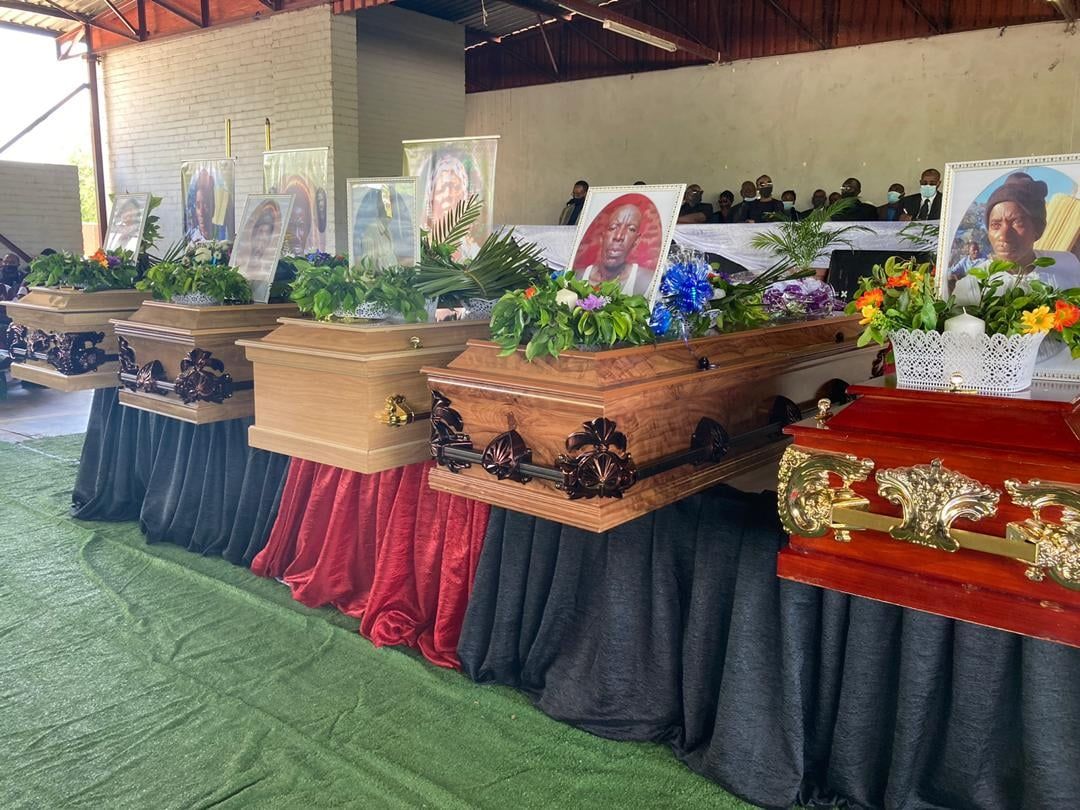Shopping cart
Recent Posts
Subscribe
Sign up to get update news about us. Don't be hasitate your email is safe.

Four fishermen entered the Chobe River in two wooden canoes on the evening of the 5th November 2020. At around 22H00, rapid gunfire was heard and then three single shots at 01:00 on the 6th of November 2020.
Dawn broke to news that the Botswana Defence Force (BDF) had shot and killed Martin, Ernest and Tommy Nchindo as well as their cousin, Sinvula Munyeme, during the night.
Those shooting deaths brought to 37 the number of Namibians killed by the BDF since Namibia became a republic. Governor Alufea Sampofu says the killings had gone on quietly at Impalila, along the Chobe River in Linyanti, and on the Kwado River up to Lizauli.
But the deaths of four members of the same family caused an uproar among the north-eastern communities of Namibia and the rest of the country. Several demonstrations flared up in the Zambezi Region with traditional leaders in that area using stern language in condemning the killings.
A movement called the Namibian Lives Matter quickly organised and started mobilising communities in the border areas, which confront the daily hostilities. It proceeded to mount the fiercest campaign for action and warned that a casual attitude towards the BDF’s hostilities will come at a cost to the Namibian Government.
In the regional and local authority elections that were held later that same month, the SWAPO Party lost half the eight constituencies it had held with affected communities dishing out their protest votes to independent candidates.
Communities there felt helpless coming up against years of BDF harassment, shooting and killing of their fellow villagers whose hope was to live off the river without being disturbed.
Many Namibians feel that the BDF’s hostility is senseless since each of the two neighbouring countries has a minority community that had originated from the other country and there was no known Namibian aggression against Batswana along the common border.
The exact details of what prompted the BDF to shoot and kill four fishermen, who were out fishing on the Chobe River remain in dispute. From witness testimonies, an informant placing a call to the Kasane Radio Control Room through a Telecom Namibia network reported that four armed men were moving in canoes on the Chobe River.
A member of the Botswana Police Service working in the Crime Intelligence Branch received the information and tried to contact the informant, but the cell phone was off. He shared the information with the BDF and only learned the next day that the soldiers had found and killed the men.
What the BDF witnesses say taken as a whole is that they searched for the men on the Chobe River and only found them moving towards Sedudu/ Kasikili island. They ordered the men to stop and heard a single shot being fired in their direction and opened fire in response.
On the basis of the Botswana authorities’ evidence, Magistrate Taboka Mopipi delivered a ruling on the 20th January 2022. While warning that the purpose of the inquest was not to establish guilt or apportion blame, he concluded that the soldiers had no intention to kill the Namibians and only went in search of them to find out what they had been doing.
He further finds that the shootings occurred in an area and at a time that were restricted and that the soldiers returned fire.
The first inconsistency in the report is with what the radio control operator relayed and what the soldiers heard. She said that there were armed men on the river while witnesses 12 and 13 said the information they received was about four men armed with two rifles.
Mopipi further felt confident making a finding that the soldiers fired back after a single shot came from the direction of the four men.
The informant never testified, authorities never found guns during abandoned dives and only the Botswana authorities had full custody of the crime scene during the initial time of the investigation.
He ignored a crucial fact when overlooking the radio controller’s testimony that what she relayed was information about armed men and what two soldiers heard was four men armed with two rifles.
The soldiers’ intention must have changed from trying to find out what the men were doing to killing them after they learned that they were armed with two rifles.
And with no guns, only two canoes, two spears, three elephant tusks and a bag of maize meal and the fact that two-of the men died in one canoe, one in the other and a fourth near edge of the river, how could the magistrate find it probable that the BDF returned fire after a single shot was fired?
Why did it not raise doubt in the magistrate when Namibian witnesses claimed that the elephant tusks had been planted to cement the narrative that the men were poachers?
The inquest magistrate was ignorant of the fact that three tusks will not account for shooting dead four people and their mother, Alphonsina Mubu, dying four-days later.
Comments are closed